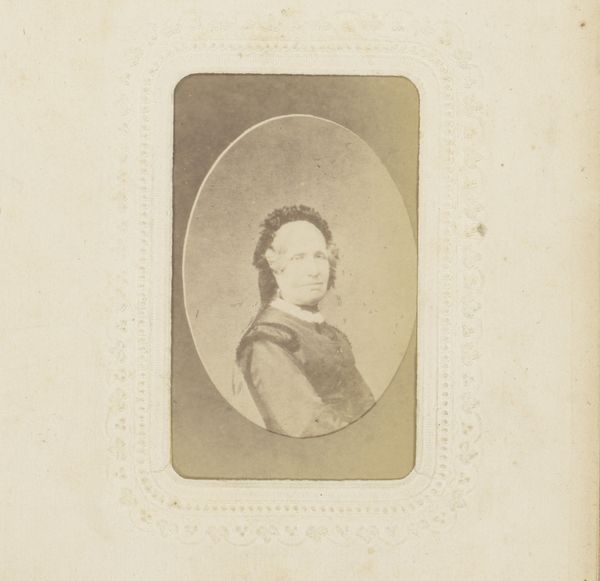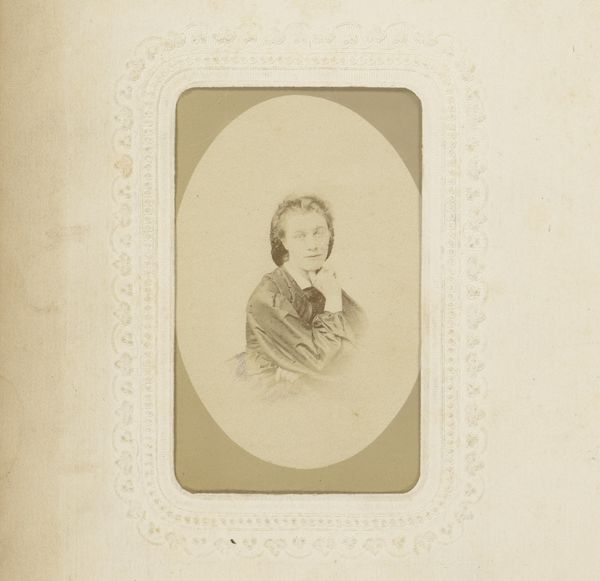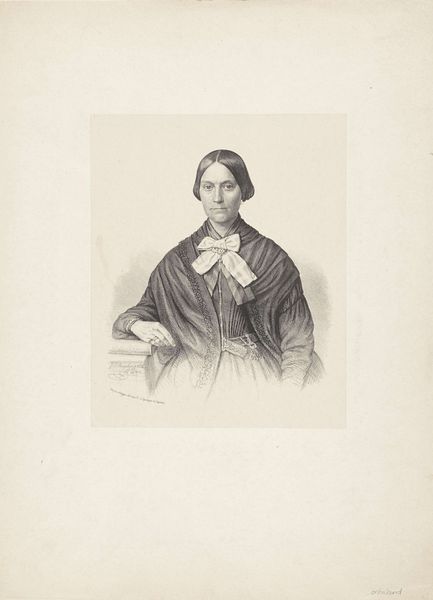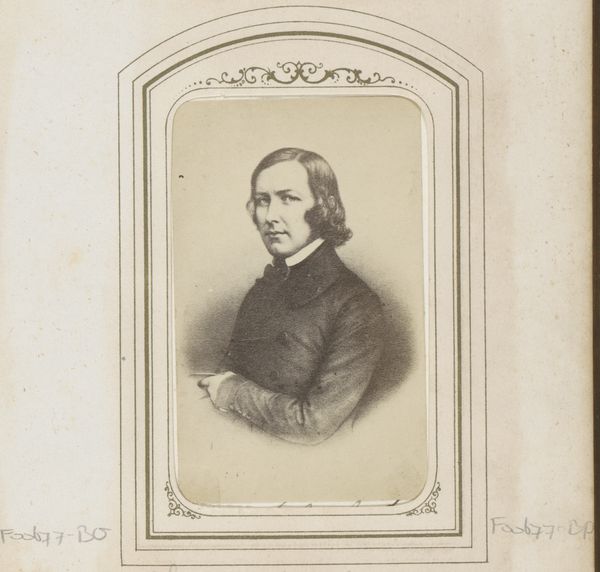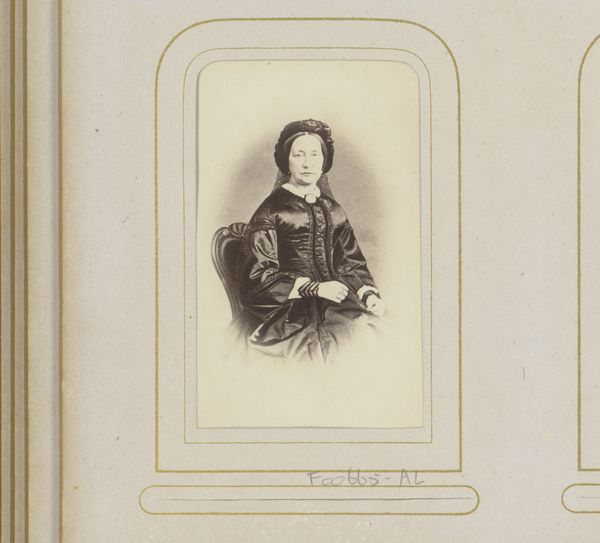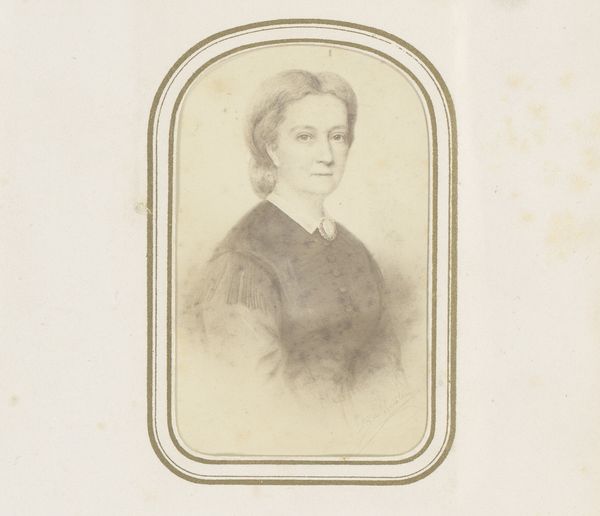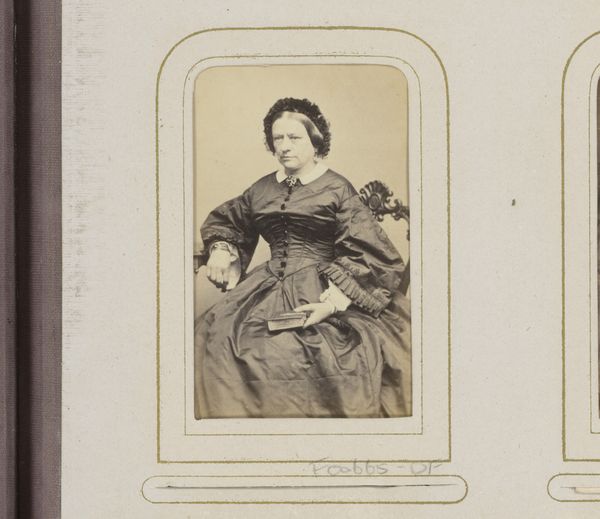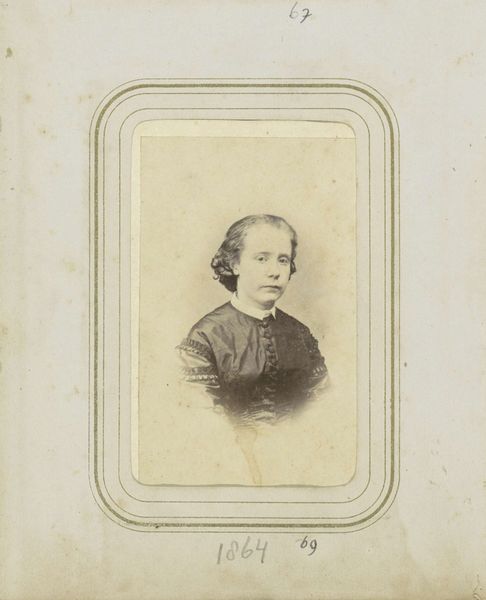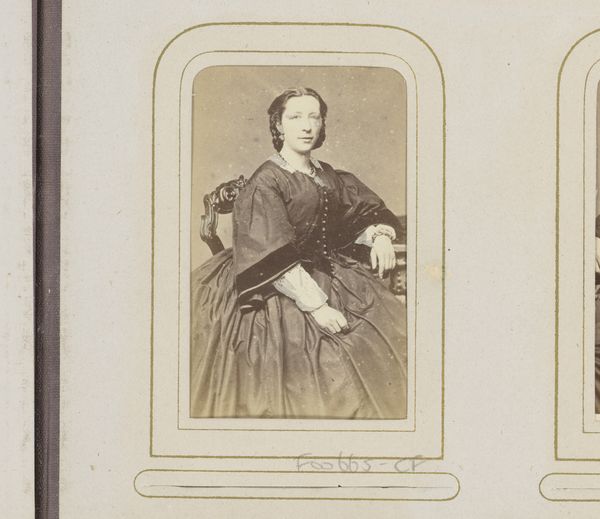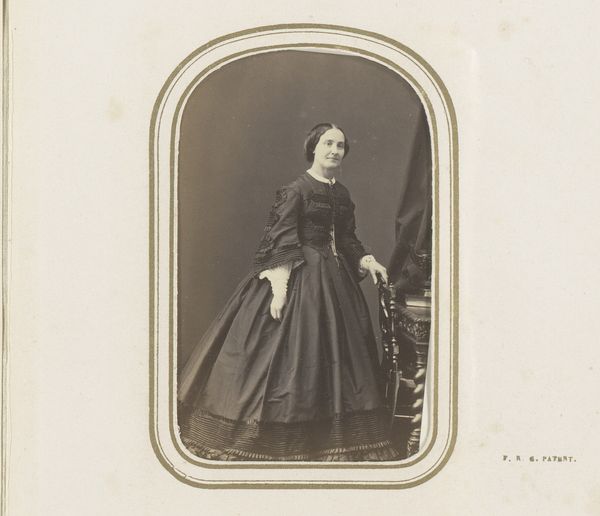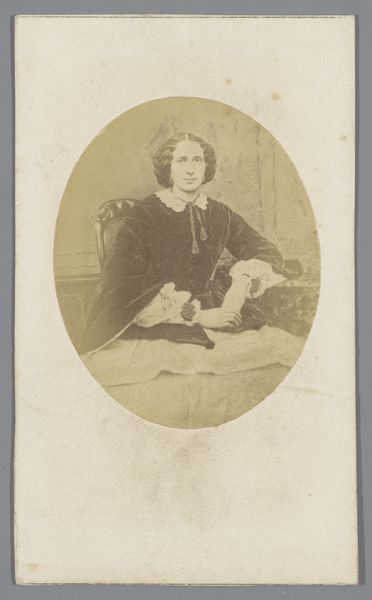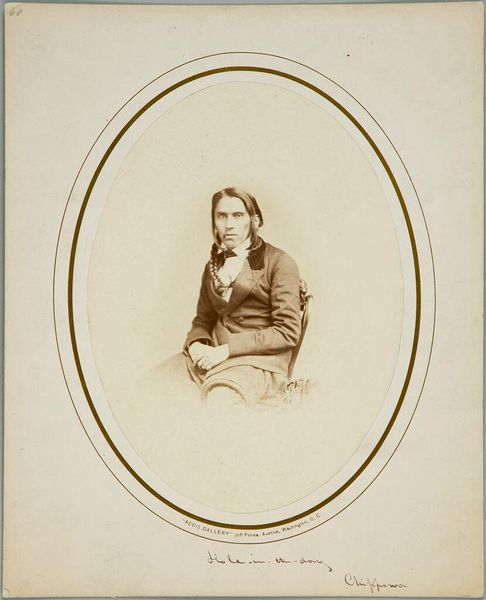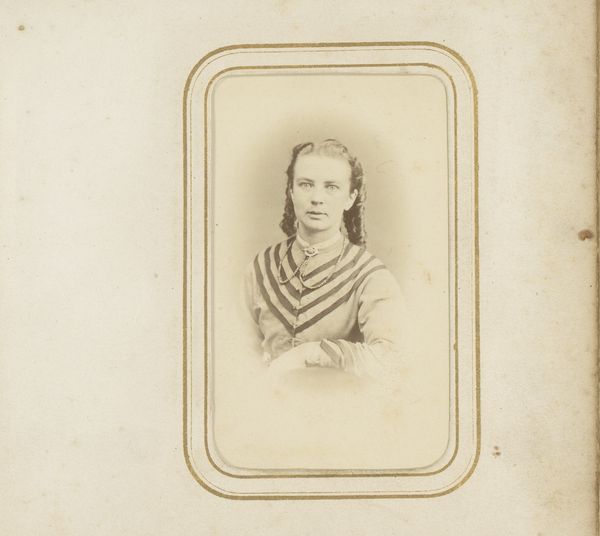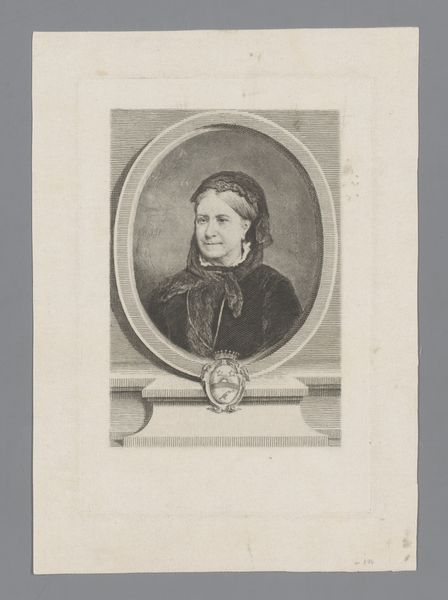
photography
#
portrait
#
figuration
#
photography
#
realism
Dimensions: height 83 mm, width 51 mm
Copyright: Rijks Museum: Open Domain
Editor: This is a portrait photograph, simply titled 'Portret van een zittende vrouw,' or 'Portrait of a Seated Woman,' created sometime between 1850 and 1877 by Alphonse Plumier. The photographic process captures a woman posed formally, seated with her hands clasped. What strikes me most is how controlled and perhaps even rigid the composition feels. What do you see in this piece, considering its historical context? Curator: Well, immediately, I think about the democratization of portraiture happening during this period. Before photography, portraiture was largely limited to the upper classes. This photograph signals a shift; a wider segment of society could now have their likeness recorded. Think about what that meant for social mobility, for visual representation in the public sphere. Who could now be seen, and what statement does that make? Editor: So the simple act of sitting for a portrait becomes a kind of statement in itself? A claiming of space? Curator: Exactly. Consider also the setting - likely a studio. Photography studios become significant social spaces where image production is carefully managed. Plumier, as the photographer, had power in staging this image, directing pose, and controlling the environment. It begs the question, doesn't it? To what extent is this woman truly represented, or is she a projection of the societal ideals that photographers like Plumier were reinforcing at that time? Editor: I see what you mean. The framing feels like more than just aesthetics; it's participating in a whole system. The image's power lies in how it's situated within 19th century culture. Thanks! Curator: Indeed. It’s a reminder that even the most seemingly straightforward portrait is entangled with social dynamics and power structures. There is so much to analyze beneath the surface, which makes even simple images engaging pieces of historical documentation.
Comments
No comments
Be the first to comment and join the conversation on the ultimate creative platform.
